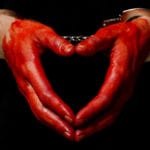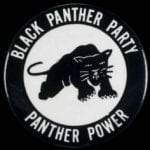 Animals
Animals  Animals
Animals  Gaming
Gaming 10 Game Characters Everyone Hated Playing
 Books
Books 10 Famous Writers Who Were Hypocritical
 Humans
Humans 10 of the World’s Toughest Puzzles Solved in Record Time
 Mysteries
Mysteries 10 Scientific Mysteries We Don’t Fully Understand
 Weird Stuff
Weird Stuff 10 Celebrities Who Have Admitted to Alien Encounters
 Our World
Our World 10 Surprising Secrets of Notre Dame Cathedral
 Miscellaneous
Miscellaneous 10 Intriguing Origins of Popular Carnival Rides
 Weird Stuff
Weird Stuff Ten Unexpected Discoveries Involving Vomit
 Movies and TV
Movies and TV 10 Actors Who Almost Didn’t Take Career-Defining Roles
 Animals
Animals 10 Amazing Animal Tales from the Ancient World
 Gaming
Gaming 10 Game Characters Everyone Hated Playing
 Books
Books 10 Famous Writers Who Were Hypocritical
Who's Behind Listverse?

Jamie Frater
Head Editor
Jamie founded Listverse due to an insatiable desire to share fascinating, obscure, and bizarre facts. He has been a guest speaker on numerous national radio and television stations and is a five time published author.
More About Us Humans
Humans 10 of the World’s Toughest Puzzles Solved in Record Time
 Mysteries
Mysteries 10 Scientific Mysteries We Don’t Fully Understand
 Weird Stuff
Weird Stuff 10 Celebrities Who Have Admitted to Alien Encounters
 Our World
Our World 10 Surprising Secrets of Notre Dame Cathedral
 Miscellaneous
Miscellaneous 10 Intriguing Origins of Popular Carnival Rides
 Weird Stuff
Weird Stuff Ten Unexpected Discoveries Involving Vomit
 Movies and TV
Movies and TV 10 Actors Who Almost Didn’t Take Career-Defining Roles
10 Black Sheep Of Famous Families
All families have that one member who brings down the family name. The so-called black sheep goes against what’s expected of them and earns a reputation the family could do without. Some black sheep brought shame on their legacy by committing horrible crimes, while others simply broke away from tradition and tried to forge their own paths. Either way, the prominence of their family only brought more attention to their actions.
10Thomas Edison Jr.

Regardless of whether you consider Thomas Alva Edison Sr. an ingenious inventor or a conniving businessman, he was certainly successful. He turned his name into a brand and made a lot of money off products that sold just because they had “Edison” written on them.
This popularity was not lost on others. His oldest son, Thomas Alva Edison Jr. (nicknamed “Dash”), tried to follow in his father’s footsteps. He wanted to become an inventor, but he just wasn’t very good at it. Even so, other people were willing to invest solely for the Edison name. Dash started the Thomas A. Edison Jr. chemical company. Among the items developed was the Magno-Electric Vitalizer, a device that supposedly cured everything, including nervous diseases, rheumatism, deafness, and bad vision.
When that company failed, Dash created the Edison Jr. Electric Light and Power Company. Afterward came the Thomas A. Edison Jr. Improved Incandescent Lamp Company. It was one failed idea after another. Each new concept was touted as coming “from the brain of Edison” or “Edison’s latest invention” in an attempt to milk the family name. However, that alone was not enough to turn quackeries into successes, and Dash found himself in debt and investigated for fraud. Eventually, his father took him to court to prevent Dash from using the Edison name anymore.
9James Capone

Under normal circumstances, James Capone should be seen as the pride and joy of the family. He was a pillar of the community. He fought in World War I, becoming a lieutenant and receiving a sharpshooter’s medal. He was a Prohibition agent known for his numerous convictions. He worked with the Bureau of Indian Affairs as a special agent. He even served as bodyguard to President Calvin Coolidge for a brief period. However, James also happened to be part of one of the most famous crime families in history.
His brother was Al Capone, pictured above, arguably the most famous gangster of all time. Brothers Frank and Ralph Capone were also mobsters who worked with the Chicago Outfit. Together, they made a fortune off numerous illegal activities, particularly the bootlegging business. You can imagine they weren’t too pleased to find out their brother was an (honest) Prohibition agent.
James had a distant relationship with his family. After the war, he moved to Nebraska and changed his named to Richard Hart before becoming a Prohibition agent. He wanted to distance himself from the family as much as possible, not even letting others know he was Italian. In 1923, “Two-Gun Hart,” as he was called, came under media scrutiny when he killed an innocent bystander during a raid. Eventually, the media uncovered that Richard Hart was actually James Capone, related to the Chicago Capones. If anything, this actually improved James’s relationship with his family, as he started visiting them occasionally.
8Charles Adams

The Adams family (not the one with Gomez and Morticia) has given the United States two presidents. Founding Father John Adams was the first vice president of the United States and then the second president. His son, John Quincy Adams, became the sixth president. His other son, Charles Adams, failed to live up to his family name.
Charles had drinking problems for most of his life, problems that started as early as 15. At that age, Charles was already studying law at Harvard, which almost kicked him out for running naked through the Harvard Yard while drunk. There were moments when Charles seemed to get his life together: He graduated law school, started a family, and even had his own practice in New York after apprenticing to Founding Father Alexander Hamilton. However, he also invested in shady dealings and lost a lot of money that didn’t belong to him. Charles’s financial problems only exacerbated his drinking. By the time he was 30, Charles had abandoned his practice completely.
In 1798, John Adams completely disowned his son, calling him “a madman possessed by the devil.” He swore never to see Charles again, and he kept his word, as Charles died two years later. Despite his anger, John revealed in a letter sorrow for his son’s passing, calling him an “unfortunate youth” with promising prospects that were cut off.
7Rainer Hoess
Just to be clear, this is a case where being the “black sheep” is a good thing. Rainer Hoess was disowned by his family and was considered a traitor for being the only one to regard his grandfather, Rudolf Hoess, as the monster that he was.
Rudolf Hoess was a Nazi officer who served as commandant of the Auschwitz concentration camp. He introduced Zyklon B to the gas chamber, thus turning his camp into the most efficient killing machine in the history of humanity. Each day, Rainer’s grandfather would kill 20,000 people by dinnertime, reasoning that he was only doing his job.
Despite this, Hoess was a hero in the family. His son (Rainer’s father), Hans-Jurgen, grew up in the villa next to Auschwitz. He would play in the garden while thousands of people were being killed just a stone’s throw away. Later on, as a father, Hans would not allow anyone to disparage Hoess. According to Rainer, there was a dictatorship where you had to “admire (my) grandfather like a hero.”
As a teenager, Rainer found out the truth about Rudolf Hoess. It was not a subject that many discussed openly. Every member of his family kept up the image of the “good commandant” except Rainer’s mother, who was his only ally and frequently suffered for it at the hands of his father. When he was 16, Rainer ran away from home and never looked back. Now he spends his time speaking at schools against extremism.
6Benson Ford Jr.

The Ford name is automotive royalty ever since Henry Ford, pictured above, founded the Ford Motor Company in 1903. Since then, it has become one of the largest automakers in the world, and the company has stayed in the family for more than a century. After Henry Ford died, his son Edsel assumed the leadership position. In turn, he passed it to his firstborn son, Henry Ford II. William Clay Ford Jr., great-grandson of Henry, is the current executive chairman of the company.
One member of the Ford family who didn’t live up to his lofty expectations is Benson Ford Jr., another great-grandson of Henry Ford. In his youth, he was content to coast by on his family fortune, preferring a lifestyle filled with parties, gambling, fast cars, and drugs. Eventually, he was persuaded to start learning the family business, but even his own father was wary of placing the fate of the Ford Motor Company in his hands. That’s why Benson Sr. left his son a fortune in company stock but placed voting rights in the hands of a trustee.
Unhappy with the decision, Benson has been arguing over ownership of the company since the ‘80s. He’s also been arrested on drug charges on more than one occasion and been accused of real estate fraud. His most bizarre event was in a 1983 lawsuit, where Benson gave sworn testimony that he was part of a team ready to kill anyone, including other Fords, to get him on the board of directors.
5Donald Nixon

American presidents with embarrassing brothers is tradition by this point. Bill Clinton had to deal with his brother Roger’s antics, and Billy Carter even used his newfound fame to promote his own brew called Billy Beer. Donald Nixon doesn’t get brought up a lot, mostly because Richard Nixon didn’t need help in tarnishing his family legacy, but he actually had a significant (negative) influence on his brother’s political career.
It all started way before Nixon’s first presidential campaign in 1960. Donald had ambitions of opening his own chain of restaurants called “Nixon’s.” However, the people didn’t seem to have an appetite for Nixonburgers, and the chain was struggling. On the verge of bankruptcy, Donald accepted a loan from Howard Hughes in 1956 of $205,000. Fast-forward a few years to Richard’s first presidential campaign, and allegations that the Nixons were in Hughes’s pocket started cropping up. After losing the election to Kennedy, those same allegations haunted Nixon during his failed candidacy for the governorship of California.
In his book, Nixon revealed that his brother Donald felt horrible for potentially costing his brother the elections, but Richard never blamed him. However, during the Watergate scandal, it was revealed that, while president, Nixon had the Secret Service wiretap his brother’s phone to be aware of any similar problems that would jeopardize his 1972 reelection bid.
4King George IV

The House of Hanover left a profound mark on the history of Great Britain. However, not all members were a credit to their name. George IV, in particular, became (and remains to this day) a royal punch line regarded as one of the worst monarchs in the history of Great Britain.
George’s own father, King George III, was nothing to brag about. He was the mad king who lost America. However, George IV’s extravagant lifestyle and penchant for self-indulgence turned him into a national embarrassment even before he took the throne in 1820.
There was a huge disconnect between how George expected to be perceived and the actions he took to achieve that image. He accumulated giant art collections. He organized sumptuous parties and pageants that were nothing more than strokes to his ego. He became renowned for his army of mistresses as well as his poor treatment of his wife, Caroline of Brunswick.
By the end of his life, George’s indulgent lifestyle turned him into a sickly, bloated man who rarely left his private quarters. When he died, it became clear how little people cared for him. The Times’s obituary said “there never was an individual less regretted by his fellow-creatures than this deceased king.” The Duke of Wellington called George “the worst man he fell in with in his whole life,” and the king’s courtier, Charles Greville, said, “a more contemptible, cowardly, selfish, unfeeling dog does not exist.”
3Jessica Mitford

Jessica Mitford was a noted author, journalist, and political campaigner and one of the Mitford sisters who made a lot of headlines in the first half of the 20th century. Born into an aristocratic English family, Jessica was the second of six sisters and a self-described “red sheep” because she was a communist in a family of fascists.
The Mitfords were quite well known for their fascist tendencies, particularly Unity Mitford, who became notorious in the English press for her admiration and complete devotion to Hitler. She even tried (and failed) to kill herself when Britain declared war on Germany. Truth be told, most of the Mitford family members were known for their adherence to fascism—both parents of the girls were sympathizers, as was their brother Thomas, and Diana Mitford married Oswald Mosley, leader of the British Fascist Party, in 1936.
Once World War II started, the Mitfords’ political inclinations came under larger scrutiny, especially as Unity and Diana Mitford often traveled to Germany to meet Hitler. By that time, Jessica had already renounced her privileged upbringing, made her political beliefs quite clear, and emigrated to the United States. She became a legal citizen in 1944 and spent the following decade campaigning for the Communist Party.
2Joe Coors Jr.

In 1873, Adolph Coors founded the Coors Brewing Company, which went on to become one of the biggest breweries in the United States. Almost a century and a half later, Coors is still going strong. The company underwent various mergers and joint ventures with other brewers such as Molson and Miller. But Coors family members have remained involved in the family business. Pete Coors, the great-grandson of Adolph, is the current chairman of the company.
Pete’s brother, Joe Coors Jr., chose not to follow the path set before him. He was completely cut off without a penny in his youth for breaking an important rule established by the family’s patriarch—marriage after college. Like the other members of his family, Joe was expected to go to college, earn a degree, and learn the family business before settling down with a family. However, Joe was in love. In 1962, he married his bride, Gail. A sudden outcast, Joe Coors Jr. found himself and his wife living in a one-room apartment, bouncing from job to job.
After a prolonged exile, Joe was welcomed back into the fold, and the former black sheep became one of the family’s most prominent members. He was tasked to run ACX Technologies with his brother Jeff, a successful but unglamorous subsidiary that manufactures ceramic components. In recent years, Joe has been in the headlines as a congressional candidate and for being a victim in an investor scheme worth over $40 million.
1Osama bin Laden

Nowadays, the name “bin Laden” (sometimes “Binladin”) only has one meaning, especially in Western society. It’s easy to forget that it’s also the name of a giant construction conglomerate with projects all over the Middle East.
The Saudi Binladin Group was created in 1931 by Mohammed Awad Binladin, shortly after the founding of the Kingdom of Saudi Arabia. In 1950, Mohammed earned the company’s first big project when King Abdul Aziz assigned him to build the first Saudi extension to the Prophet’s Mosque in Madina. Since then, the bin Laden family has maintained close personal ties to the Saudi Royal Family.
When Mohammed died, he left behind 54 sons and daughters. His oldest, Bakr, assumed leadership of the company, while 13 other brothers joined him on the board of directors. The family had been aware of Osama’s radical beliefs for a long time and began distancing itself since the early ‘90s. In 1994, he was officially disowned by the bin Laden family, but there’s still plenty of debate regarding how much assistance Osama bin Laden received (if any) from his family in founding and running Al-Qaeda.
Radu is a history/science buff with an interest in all things bizarre and obscure. Share the knowledge on Twitter or check out his website.








